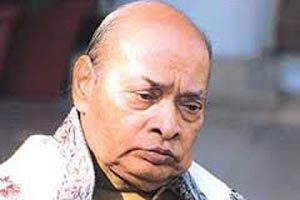 Washington, Feb 23: The prospect of a crippling economic sanctions, "improving" electoral chances and his "desire" to be noted as the architect of India's economic revolution might have prevented the then Prime Minister Narasimha Rao from going for nuclear tests in the winter of 1995-96.
Washington, Feb 23: The prospect of a crippling economic sanctions, "improving" electoral chances and his "desire" to be noted as the architect of India's economic revolution might have prevented the then Prime Minister Narasimha Rao from going for nuclear tests in the winter of 1995-96.
This was the conclusion that the Clinton Administration had arrived which for weeks in December and then in January mounted pressure on India by itself and through its allies warning New Delhi against going ahead with nuclear tests in Pokharan, in support of which it provided satellite imageries to the Indian Government.
According to the classified American cables released yesterday by the National Security Archive, which it obtained from the federal government under the freedom of information act, it was by December 10, 1995 that US intelligence agencies informed the Clinton administration about an impending Indian nuclear tests at Pokharan resulting in a flurry of activities by the US. And it was by January 24, 1996, the Clinton Administration concluded that Rao has decided against conducting the nuclear tests.
"Prime Minister Rao probably will not authorise a nuclear test in the near future despite indications that a site in western India is being upgraded for that purpose," a State Department cable concluded on January 24, 1996.
"Though a nuclear test might boost his re-election prospects in April, it would almost certainly provoke international sanctions against India and further jeopardise his government's economic liberalisation program," the cable said.
The Clinton Administration, it said, first became aware of the increased activity at Pokhran in November 1995, adding that the activities included improved perimeter security, other infrastructural upgrades and placement of a large amount of dirt – believed to be stemming material to cover a device once it has been lowered down a test hole – next to drill shafts.
The cable explains why Rao apparently decided against the nuclear test. "Even without a nuclear test, there are indications that Rao's electoral prospects are beginning to improve. Recent allegations that many of Rao's opponents, both inside and outside the Congress party, may have been involved in a major corruption scandal, have given him a tactical advantage as the campaign commences," the secret document said.
According to the cables, the analysts then predicted that Congress party will win sufficient seats in the new parliament to cobble together a coalition government designed to exclude the BJP from power.
"His last hurrah. As he prepares to fight an aggressive election campaign, Rao probably has one eye on posterity. A reluctant Prime Minister even in 1991, Rao is nearly 75 years old and in indifferent health. He almost certainly hopes he will be remembered for his most important contribution, the liberalisation of India's economy.
"For the economy to continue and grow and attract foreign investment, Rao must avoid provoking the west in particular the United States – which would seek to restrict international aid and investment to India in the event of a test. These hard realities, coupled with his natural caution, probably will constrain him from approving a test," the secret US document concluded.
In another classified US document, which was prepared to respond to the questions from US lawmakers on this issues, Narasimha Rao is described as someone who does not take rash actions. "PM Rao is by temperament and character a cautious and practical man not given to rash action. There is no direct evidence he has made a decision to test," said the document.





Comments
Add new comment